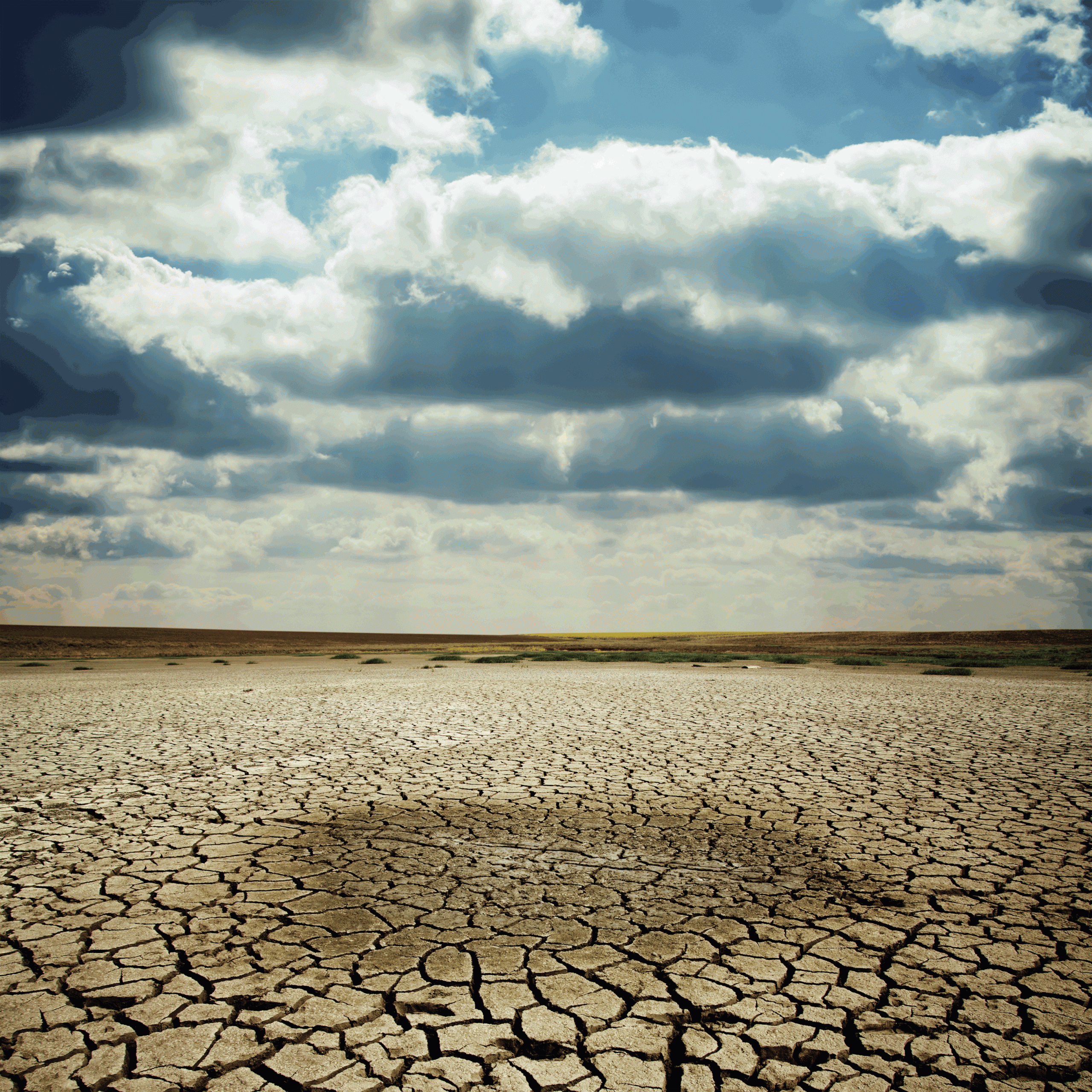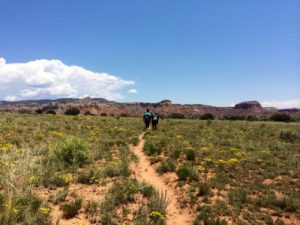Come To The Waters
Lesson Three

Absence of Water—Thirst and Longing
Scripture: Exodus 17:1-7 (Blog Inspiration)
 Have you ever spent time wandering in the wilderness of a desert? I’m not talking about a metaphorical desert. I mean an arid place in which water is in short supply and you feel a deep thirst. Have you ever spent time there?
Have you ever spent time wandering in the wilderness of a desert? I’m not talking about a metaphorical desert. I mean an arid place in which water is in short supply and you feel a deep thirst. Have you ever spent time there?
For the past two summers, we have taken youth to an annual conference at Ghost Ranch, a PC(USA) education and retreat center in the high desert of northern New Mexico. For six days each June, youth and adults from around the country have gathered to live in community, exploring questions of faith and connecting to God, one another, and the earth. We’ve also connected deeply with ourselves, discovering our strengths, vulnerabilities, and sometimes a sense of call.
Our days have a beautiful regularity to them, a pace that is different from life at home. We rise early in the morning to walk down the mesa to pray, using practices such as examen (as described in our Bible study book on page 85), body prayers with chanting and movement, and breath prayers. Our days offer a balanced rhythm of play, worship, hiking, service, and stretching beyond our comfort zones, in solitude and with others. We fall asleep shortly after the sun sets.
Accommodations on the mesa are simple and stark. Our rooms have bunk beds, a sink on the wall, a small dresser, a rod for hanging clothes, concrete floors, and screened doors and windows to catch the desert breeze. That’s all—and that is enough. Most of our time is spent outdoors, including enjoying communal meals, as we soak up the beauty of the surrounding red, orange, and yellow sandstone formations and the blue flat-top mountain, Pedernal, on the distant horizon. Summer days are hot, dry, and dusty in the full sun, but sitting in an Adirondack chair in the shade of a cottonwood tree offers cool relief. Some call Ghost Ranch a “thin place,” a place where heaven and earth come close. A thin place does not necessarily bring comfort or peace, but is a place where we catch a glimpse of the power and presence of God in unexpected and often surprising ways. With the distractions of daily life stripped away and the freedom that such simplicity brings, Ghost Ranch has become a thin place for me. I breathe a little easier there, most of the time.
This past June, I had a different experience when I helped accompany forty middle schoolers on a desert hike. We were taken by vans a few miles north on Highway 84 then dropped off to hike back to the main part of the ranch. We traveled light, wearing hats, long sleeves, and sunscreen for protection, and carrying cameras, lunches, and two water bottles in our backpacks. Once the vans drove away, there was no turning back. With no cell phone reception or interior roads, we had but one way out, on foot.
For the first couple of hours, we stopped periodically for small group discussions and prayer. We were frequently reminded to drink water, an important practice in the desert. The early hike offered hills with amazing vistas and occasional trees in whose shade we found rest. There was a lightness to our spirits as we braved the elements. Often we walked in silence. At other times, we laughed and talked along the path. We felt strong! After a lunch-break in a grove of trees, we gathered our belongings and continued the journey. Crossing a dry creek bed, we followed the trail up and onto a wide-open space where we could see for miles. The desert path in front of us flattened and thinned and offered no shelter. The sun was high. Water ran low with no source for refills. The hikers spread out along the trail, often walking in silence and solitude across the land that Georgia O’Keefe made famous in her paintings. Without visual clues, most of us had no idea how close we were to our destination or how much longer it would take. What lay ahead seemed to be an ever-lengthening trail through red dirt and low desert plants, uncharacteristically green after a thunderstorm the night before.
My feet hurt. My skinned burned. I was out of breath, thirsty, and a little afraid as the desert loomed large. I trusted that we weren’t really in danger but the more I walked with no sign of civilization, a conversation began in my head that went something like this: “What made you think that THIS was a good idea? Who do you think you are? You are 62 years old, for heaven’s sake! Why did “they” not prepare us for how long this would take? I wonder how long it WILL take? What if I just collapse here in the desert? That would be horrible for these kids. My mouth is so dry.” In the midst of my inner complaining, I tried to focus on the beauty around us, to be present to the surroundings that were, for the most part, unmarred by humans. “Jo Ann, this part of the ranch is off limits to individual hikers. It’s a privilege to spend time in the majesty of this desert. Just look at that red ridge against the blue sky. I’m going to take a picture. What an experience! We don’t have many wild places at home,” followed by, “I really wish they’d told us to bring more water. The kids seem okay but I’m worried about Trevor. He finished his last bottle at lunch. Why didn’t Jim come with us? I should never have come. I could have stayed back at the library to read. Where IS that gravel road Sharon promised was just ahead? I want to take a nap. Oh, no! Are those buzzards circling above us?”
And there in the desert, in the middle of my blaming and complaining, I had an awakening. The Spirit broke through the static of my inner mumblings and grumblings, and dropped the story of the Israelites into my thoughts. Really. With newfound clarity that could only have come from divine intervention, I confessed to myself that, through the years, I had unconsciously judged their behavior, imagining that they should or could have trusted God more. After all, God was leading them and providing manna, right? But here after only four hours of walking across unfamiliar territory, and even knowing that water awaited me at the end of the trail, I had already lost patience. I saw how quickly my physical thirst had transformed into a spiritual thirst as well (or soul thirst as Judy Record Fletcher describes on pages 27 and 28 of our study.) I felt compassion for the women, men, and children who had wandered in the wilderness for four decades, and at that moment, I felt God’s presence. “Therefore, I will now allure her, and bring her into the wilderness, and speak tenderly to her.” Hosea 2:14. That is not to say that the blisters on my feet no longer hurt, that my thirst was quenched, and my grumpiness vanished. No, none of that happened, but with a profound sense of humility, I began laughing out loud at myself, breaking the silence of the desert air. A thin place indeed.
In Lesson Three’s “Suggestion for Leaders,” Larissa Kwong Abazia invites participants to respond to the story with the emotions that the Israelites may have felt during their struggle described in Exodus 17:1-7. I look forward to using her ideas when our PW group meets in a few weeks. It should prove to be a meaningful and memorable exercise to try to get into the heads and hearts of people in the story, remembering that this part of the story does NOT end with an awakening. I’ll bet that their feet hurt and skin burned, too, as they wandered in the looming wilderness, thirsty, angry, and afraid for their lives. I imagine their inner dialogue was quite graphic, with no laughter breaking the silence of the desert air. I’m guessing my friends will do a powerful job of making the story come alive, drawing from their own times of thirst and longing as they respond to the prompts of the passage.
When have you experienced times of thirst? When has a physical thirst, hunger, or tiredness led to the spiritual thirst of anger or resentment? Have you, too, found yourself right there in the wilderness with the Israelites, complaining and looking for targets to blame, and in general “behaving badly,” to use Judy’s words? Apparently it is such a common phenomenon that a word has been coined in our culture to describe such feelings, “hangry.” The online Urban Dictionary defines hangry as “State when you are both hungry and angry, the former causing the latter. Results in outrageous outbursts and unbridled rage . . . ” Wouldn’t the Israelites get a kick out of our idea that this feeling is something new?
I look forward to hearing your stories and learning what thoughts our Bible study and this blog are stirring up within you.
With love and a grateful heart,
Jo Ann Currie
Director of Christian Education & Spiritual Formation
First Presbyterian Church, Pasadena, Texas
